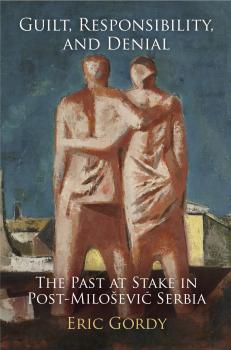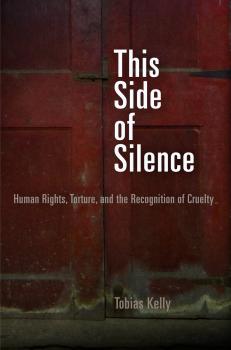ТОП просматриваемых книг сайта:
Социология
Различные книги в жанре Социология, доступные для чтения и скачиванияАннотация
Three weeks after Lyndon Johnson signed the Civil Rights Act of 1964, a New York City police officer shot and killed a fifteen-year-old black youth, inciting the first of almost a decade of black and Latino riots throughout the United States. In October 2005, French police chased three black and Arab teenagers into an electrical substation outside Paris, culminating in the fatal electrocution of two of them. Fires blazed in Parisian suburbs and housing projects throughout France for three consecutive weeks. Cathy Lisa Schneider explores the political, legal, and economic conditions that led to violent confrontations in neighborhoods on opposite sides of the Atlantic half a century apart. Police Power and Race Riots traces the history of urban upheaval in New York and greater Paris, focusing on the interaction between police and minority youth. Schneider shows that riots erupted when elites activated racial boundaries, police engaged in racialized violence, and racial minorities lacked alternative avenues of redress. She also demonstrates how local activists who cut their teeth on the American race riots painstakingly constructed social movement organizations with standard nonviolent repertoires for dealing with police violence. These efforts, along with the opening of access to courts of law for ethnic and racial minorities, have made riots a far less common response to police violence in the United States today. Rich in historical and ethnographic detail, Police Power and Race Riots offers a compelling account of the processes that fan the flames of urban unrest and the dynamics that subsequently quell the fires.
Аннотация
Информация о книге
Автор произведения Lisa M. Cuklanz
Жанр Социология
Серия Feminist Cultural Studies, the Media, and Political Culture
Аннотация
Before the twenty-first century, there was little legal precedent for the prosecution of sexual violence as a war crime. Now, international tribunals have the potential to help make sense of political violence against both men and women; they have the power to uphold victims' claims and to convict the leaders and choreographers of systematic atrocity. However, by privileging certain accounts of violence over others, tribunals more often confirm outmoded gender norms, consigning women to permanent rape victim status. In Sex and International Tribunals , Chiseche Salome Mibenge identifies the cultural assumptions behind the legal profession's claims to impartiality and universality. Focusing on the postwar tribunals in Rwanda and Sierra Leone, Mibenge mines the transcripts of local and supranational criminal trials and truth and reconciliation commissions in order to identify and closely examine legal definitions of forced marriage, sexual enslavement, and the conscription of children that overlook the gendered experiences of armed conflict beyond the mass rape of women and girls. In many cases, a single rape conviction constitutes sufficient proof that gender-based violence has been mainstreamed into the prosecution of war crimes. Drawing on anthropological research in African conflicts, and feminist theory, Mibenge challenges legal narratives that reinscribe essentialized notions of gender in the conduct and resolution of violent conflict and uncovers the suppressed testimonies of men and women who are unwilling or unable to recite the legal scripts that would elevate them to the status of victimhood recognized by an international and humanitarian audience. At a moment when international intervention in conflicts is increasingly an option, Sex and International Tribunals points the way to a more nuanced and just response from courts.
Аннотация
When the regime led by Slobodan Milošević came to an end in October 2000, expectations for social transformation in Serbia and the rest of the Balkans were high. The international community declared that an era of human rights had begun, while domestic actors hoped that the conditions that had made a violent dictatorship possible could be eliminated. More than a decade after the International Criminal Tribunal for the Former Yugoslavia initiated the process of bringing violators of international humanitarian law to justice, significant legal precedents and facts have been established, yet considerable gaps in the historical record, along with denial and disagreements, continue to exist in the public memory of the Yugoslav wars. Guilt, Responsibility, and Denial sets out to trace the political, social, and moral challenges that Serbia faced from 2000 onward, offering an empirically rich and theoretically broad account of what was demanded of the country's citizens as well its political leadership—and how these challenges were alternately confronted and ignored. Eric Gordy makes extensive use of Serbian media to capture the internal debate surrounding the legacy of the country's war crimes, providing one of the first studies to examine international institutional efforts to build a set of public memories alongside domestic Serbian political reaction. By combining news accounts, courtroom transcripts, online discussions, and his own field research, Gordy explores how the conflicts and crimes that were committed under Milošević came to be understood by the people of Serbia and, more broadly, how projects of transitional justice affect the ways society faces issues of guilt and responsibility. In charting the legal, political, and cultural forces that shape public memory, Guilt, Responsibility, and Denial promises to become a standard resource for studies of Serbia as well as the workings of international and domestic justice in dealing with the aftermath of war crimes.
Аннотация
'Trattato di sociologia generale' è l'opera principale di Pareto; è stato pubblicato per prima nel 1916 in lingua italiana, nel 1920, anche in francese. Questo e-book segue la 3 ° edizione italiana.
Development-Induced Displacement and Resettlement: Causes, Consequences, and Socio-Legal Context - Bogumil Terminski
Аннотация
This book explores the issue of development-induced resettlement, with a particular emphasis on the humanitarian, legal, and social aspects of this problem. Today, so-called development-induced displacement and resettlement' (DIDR) is one of the dominant causes of internal spatial mobility worldwide. Each year over 15 million people are forced to abandon their homes to make space for economic development infrastructure. The construction of dams and irrigation projects, the expansion of communication networks, urbanization and re-urbanization, the extraction and transportation of mineral resources, forced evictions in urban areas, and population redistribution schemes count among the many possible causes.
Terminski aims to present the issue of development-caused displacement as a highly diverse, global social problem occurring in all regions of the world. As a human rights issue it poses a challenge to public international law and to institutions providing humanitarian assistance. A significant part of this book is devoted to the current dynamics of development-caused resettlement in Europe, which has been neglected in the academic literature so far.
Terminski aims to present the issue of development-caused displacement as a highly diverse, global social problem occurring in all regions of the world. As a human rights issue it poses a challenge to public international law and to institutions providing humanitarian assistance. A significant part of this book is devoted to the current dynamics of development-caused resettlement in Europe, which has been neglected in the academic literature so far.
Аннотация
In 'The Principles of Sociology' Spencer rejected the sociology of Auguste Comte's positivism and made some valuable contributions to early sociology, attempting to reformulate social science in terms of evolutionary biology. A 'social organism' evolved from the simpler state to the more complex according to the universal law of evolution. Spencer's theories of laissez-faire, survival-of-the-fittest and minimal human interference in the processes of natural law had an enduring influence on thinkers and politicians such as Friedrich Hayek, Milton Friedman and Margaret Thatcher.
Аннотация
Between 1985 and 2008, female suicide bombers committed more than 230 attacks—about a quarter of all such acts. Women have become the ideal stealth weapon for terrorist groups. They are less likely to be suspected or searched and as a result have been used to strike at the heart of coalition troops in Iraq and Afghanistan. This alarming tactic has been highly effective, garnering extra media attention and helping to recruit more numbers to the terrorists' cause. Yet, as Mia Bloom explains in Bombshell: Women and Terrorism , female involvement in terrorism is not confined to suicide bombing and not limited to the Middle East. From Northern Ireland to Sri Lanka, women have been engaged in all manner of terrorist activities, from generating propaganda to blowing up targets. What drives women to participate in terrorist activities? Bloom—a scholar of both international studies and women's studies—blends scrupulous research with psychological insight to unearth affecting stories from women who were formerly terrorists. She moves beyond gender stereotypes to examine the conditions that really influence female violence, arguing that while women terrorists can be just as bloodthirsty as their male counterparts, their motivations tend to be more intricate and multilayered. Through compelling case studies she demonstrates that though some of these women volunteer as martyrs, many more have been coerced by physical threats or other means of social control. As evidenced by the March 2011 release of Al Qaeda's magazine Al Shamikha , dubbed the jihadi Cosmo , it is clear that women are the future of even the most conservative terrorist organizations. Bombshell is a groundbreaking book that reveals the inner workings of a shocking, unfamiliar world.
Аннотация
We are accustomed to thinking of torture as the purposeful infliction of cruelty by public officials, and we assume that lawyers and clinicians are best placed to speak about its causes and effects. However, it has not always been so. The category of torture is a very specific way of thinking about violence, and our current understandings of the term are rooted in recent twentieth-century history. In This Side of Silence , social anthropologist Tobias Kelly argues that the tensions between post-Cold War armed conflict, human rights activism, medical notions of suffering, and concerns over immigration have produced a distinctively new way of thinking about torture, which is saturated with notions of law and trauma. This Side of Silence asks what forms of suffering and cruelty can be acknowledged when looking at the world through the narrow legal category of torture. The book focuses on the recent history of Britain but draws wider comparative conclusions, tracing attempts to recognize survivors and perpetrators across the fields of asylum, criminal law, international human rights, and military justice. In this thorough and eloquent ethnography, Kelly avoids treating the legal prohibition of torture as the inevitable product of progress and yet does not seek to dismiss the real differences it has made in concrete political struggles. Based on extensive archival research and ethnographic fieldwork, the book argues that the problem of recognition rests not in the inability of the survivor to communicate but in our inability to listen and take responsibility for the injustice before us.










